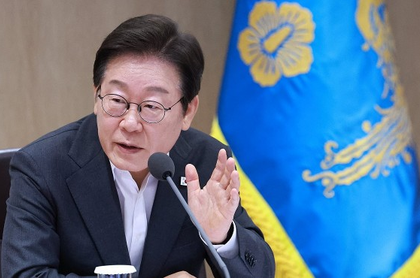South Korea: Lee govt unveils first tax reform plan aimed at increasing revenue
By IANS | Updated: July 31, 2025 18:49 IST2025-07-31T18:40:38+5:302025-07-31T18:49:50+5:30
Seoul, July 31 The South Korean government on Thursday unveiled a comprehensive tax reform plan aimed at strengthening ...

South Korea: Lee govt unveils first tax reform plan aimed at increasing revenue
Seoul, July 31 The South Korean government on Thursday unveiled a comprehensive tax reform plan aimed at strengthening the national revenue base, which includes raising the top corporate tax rate and tightening capital gains taxation by broadening the definition of large shareholders.
The reform marks the first major tax overhaul under President Lee Jae Myung, who took office early last month, and comes as part of the administration's efforts to restore fiscal soundness and address what it sees as tax benefits tilted toward large corporations and high-income earners, Yonhap News Agency reported.
The government estimates the reform package will generate an additional 8.17 trillion won (USD 5.87 billion) in tax revenue over the next five years.
According to the Ministry of Economy and Finance, the top corporate tax rate will be raised by 1 percentage point across all four tax brackets, effectively rolling back cuts introduced by the previous Yoon Suk Yeol administration in 2022.
Currently, the corporate income tax is levied at 9 percent for an annual income of up to 200 million won, 19 percent for income between 200 million and 20 billion won, 21 per cent for income between 20 billion and 300 billion won, and 24 percent for income above 300 billion won.
The latest proposal would increase the rate for each bracket by 1 percentage point, restoring the highest rate to 25 per cent.
The conservative Yoon administration had cut the top corporate tax rate to 24 percent in 2022 to stimulate private sector investment.
The proposed changes are subject to approval by the National Assembly. If passed, the revised corporate tax rates will apply to business income earned starting next year, with increased revenue expected to start materializing in 2027.
In a separate measure to increase capital gains tax revenues, the government also plans to lower the threshold for being classified as a large shareholder from 5 billion won to 1 billion won.
The move effectively reverses a policy introduced by the previous administration, which had eased capital gains tax obligations by raising the threshold for large shareholders from 1 billion won to 5 billion won.
Under the current law, major shareholders in listed companies face a capital gains tax rate of 22 to 27.5 per cent, including local income tax. The tax applies to stock sales made during the previous year, regardless of price fluctuations.
"The resources secured through these measures will be reinvested into businesses to support the development of ultra-innovative products," First Vice Finance Minister Lee Hyoung-il said during a press briefing.
The reform is seen as part of President Lee's broader push to reverse the previous administration's tax policies, which the ruling Democratic Party has criticized as favoring the wealthy and large conglomerates.
"Our revenue base has rapidly weakened over the past three years, leading to a significant rise in the nation's overall tax burden," Vice Minister Lee said. "This reform focuses on restoring the foundation of sustainable public finance."
The plan also includes adjustments to the education tax levied on financial and insurance companies in place of value-added tax.
For companies earning more than 1 trillion won in annual revenue, the education tax rate will be increased from the current 0.5 per cent to 1 percent, the ministry said.
If realized, this would mark the first time in 45 years, since the education tax was introduced in 1981, that a new tax bracket and higher rate have been established.
Disclaimer: This post has been auto-published from an agency feed without any modifications to the text and has not been reviewed by an editor
Open in app